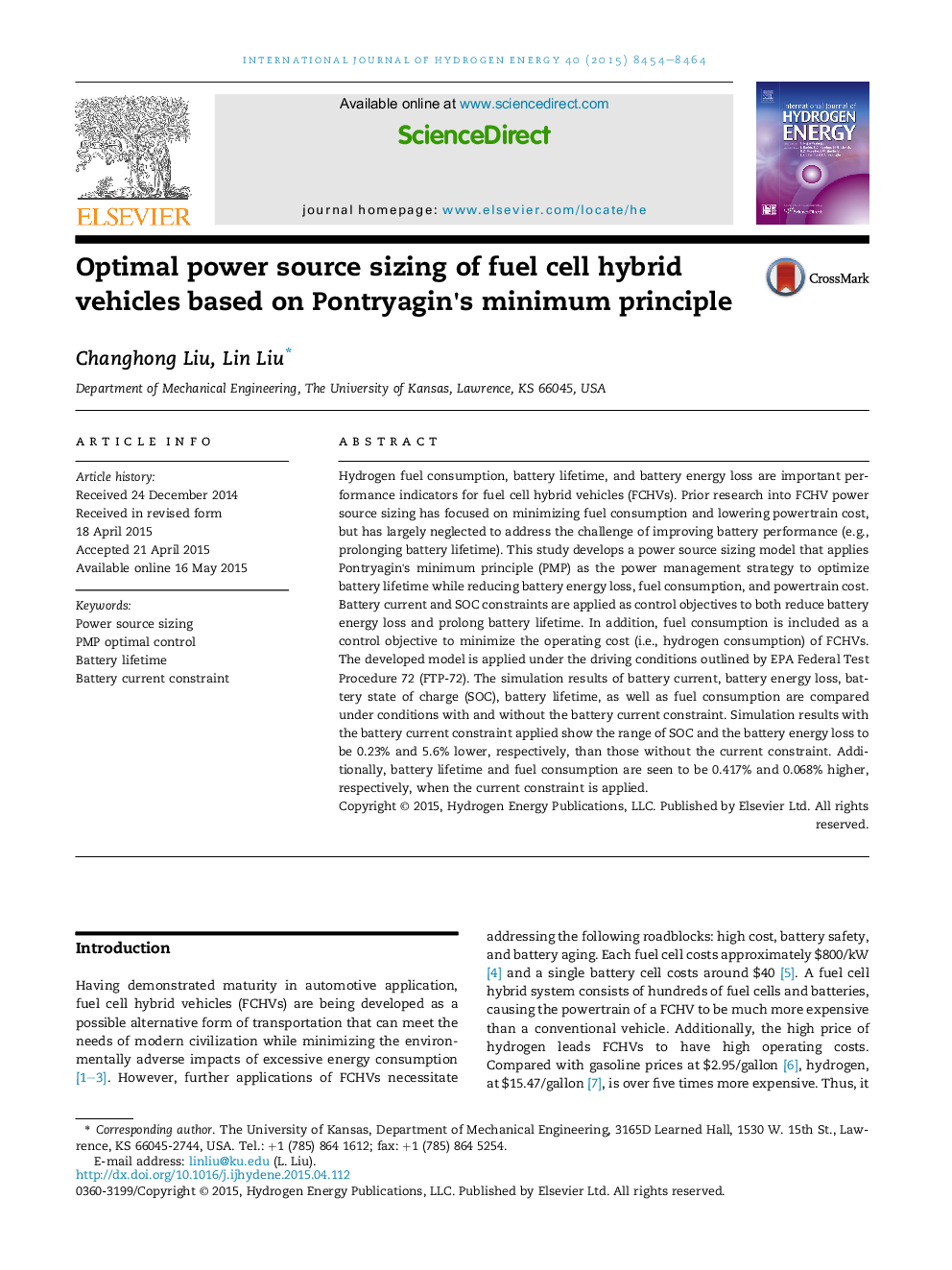| Article ID | Journal | Published Year | Pages | File Type |
|---|---|---|---|---|
| 1270725 | International Journal of Hydrogen Energy | 2015 | 11 Pages |
•We developed a modeling framework for optimization of FCHV power source sizing.•Prolonging battery lifetime while minimizing hydrogen consumption and powertrain cost.•Applying the battery current constraint to mitigate battery failure.
Hydrogen fuel consumption, battery lifetime, and battery energy loss are important performance indicators for fuel cell hybrid vehicles (FCHVs). Prior research into FCHV power source sizing has focused on minimizing fuel consumption and lowering powertrain cost, but has largely neglected to address the challenge of improving battery performance (e.g., prolonging battery lifetime). This study develops a power source sizing model that applies Pontryagin's minimum principle (PMP) as the power management strategy to optimize battery lifetime while reducing battery energy loss, fuel consumption, and powertrain cost. Battery current and SOC constraints are applied as control objectives to both reduce battery energy loss and prolong battery lifetime. In addition, fuel consumption is included as a control objective to minimize the operating cost (i.e., hydrogen consumption) of FCHVs. The developed model is applied under the driving conditions outlined by EPA Federal Test Procedure 72 (FTP-72). The simulation results of battery current, battery energy loss, battery state of charge (SOC), battery lifetime, as well as fuel consumption are compared under conditions with and without the battery current constraint. Simulation results with the battery current constraint applied show the range of SOC and the battery energy loss to be 0.23% and 5.6% lower, respectively, than those without the current constraint. Additionally, battery lifetime and fuel consumption are seen to be 0.417% and 0.068% higher, respectively, when the current constraint is applied.
